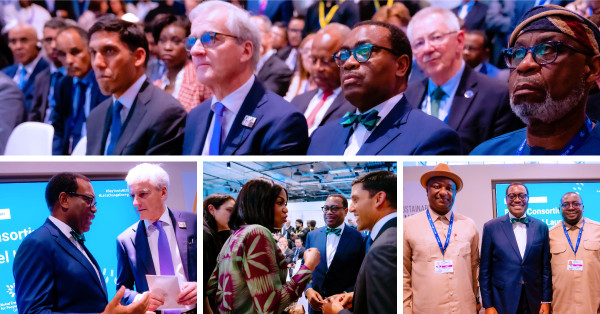Several African countries have formally expressed interest to join the groundbreaking Battery Energy Storage Systems (BESS) Consortium, launched Saturday during COP28, which could revolutionise Africa’s energy landscape by developing advanced energy storage solutions through collaboration and innovation.
Joining the BESS Consortium, a multistakeholder partnership initiative of the Global Leadership Council, commits members to participate in efforts to reach energy storage commitments of 5 GW through the end of 2024. This will in turn provide a roadmap to ultimately achieving 400 GW of renewable energy by 2030.
Burkina Faso, Egypt, Ghana, Kenya, Malawi, Mauritania, Mozambique, Nigeria, and Togo. have formally expressed interest to join the Consortium. These countries are expected to receive support from BESS Consortium resource partners that include the African Development Bank, the World Bank, the Asian Development Bank, the Inter-American Development Bank, the Agence Française de Développement (AFD), Africa50 and Masdar.
Resource partners will help prepare projects, improve the regulatory environment and unlock private and public investment.
In response to the announcement, Malawi’s President Dr. Lazarus Chakwera said, “Malawi is committed to maintaining a renewable energy generation pathway for a sustainable future – and it’s projects like the BESS Consortium that will make our low carbon pathway a reality. We need more projects like that.”
Mauritania’s Minister of Petroleum, Mines and Energy, Nany Ould Chrougha expressed satisfaction over his country’s membership in the consortium. He believes that the need for battery storage is paramount for the country, which already records 40% reliance on renewable energy, and is set to become increasingly dependent, particularly, on solar and wind power.
African Development Bank President, Dr Akinwumi Adesina said, “The African Development Bank is proud to be at the forefront of this transformative journey, leveraging strategic partnerships and financial commitments to drive progress. As we move forward, let us remain steadfast in our dedication to a cleaner, greener, and more prosperous Africa—one powered by the limitless potential of renewable energy and the resilience of the African spirit. Together, we can light up and power Africa for generations to come.”
Adesina also highlighted the synergies between the BESS consortium and the Bank’s flagship Desert to Power initiative.
Dr Rajiv J. Shah, President of the Rockefeller Foundation and Co-chair of the Global Leadership Council said, “Without sufficient storage capacity, countries will be unable to add renewable energy to their grids at the scale needed to reduce emissions and create economic opportunity. The BESS Consortium is an example of the sort of big, bold action required to break down the barriers keeping so many people and communities from joining the climate transformations underway.”
Barbados, Belize and India have also joined the BESS Consortium.
The Prime Minister of Barbados, Mia Mottley said, “Barbados is committed to playing a leading role in urging concrete deliverables on climate and climate financing. We are here with the BESS Consortium today because we support their efforts to improve access to battery energy storage systems as part of the energy transition in countries like ours.”
The Global Leadership Council is a high-level coalition of global leaders brought together by the Global Energy Alliance for People and Planet. It includes leaders of multilateral development banks, development finance institutions, international agencies, NGOs, corporate executives, and government representatives.
Distributed by APO Group on behalf of African Development Bank Group (AfDB).
Additional Images: https://apo-opa.co/3Ne37CV
Media contact:
Olufemi Dawah
Terry
Communications and External Relations Department
media@afdb.org
Technical contacts for Desert to Power:
Franklin GBEDEY
Manager
Renewable Energy Division
f.gbedey@afdb.org
